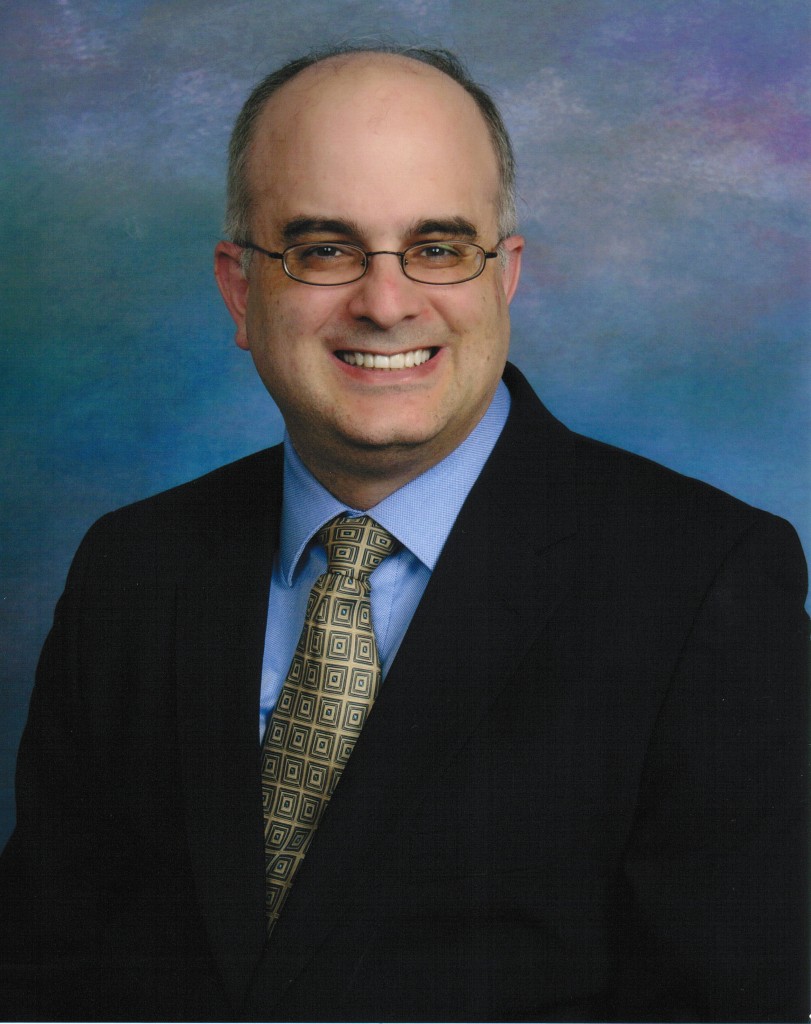Recognizing Mental Health and Learning Disability Issues in College Students on May 3, 2011 #CollegeChat
Dr. Susan Fletcher, Ph.D., a practicing psychologist and expert in the fields of AD/HD, learning disabilities, emotional intelligence and relationships, will discuss how to recognize common mental health disorders, including depression and alcohol use, as well as learning disabilities that exhibit for the first time during college, on #CollegeChat, Tuesday, May 3, 2011 at 9 p.m. Eastern. Dr. Fletcher is the founder of Fletcher & Associates Psychological Services, P.A.
During #CollegeChat, Dr. Fletcher, http://twitter.com/#!/SmartZonePhD , will discuss with attendees:
- What are the most common psychological issues to show up in college students?
- Why do these issues present during college? Are there specific triggers?
- Why is there in increase in depression and anxiety disorders in college?
- Are colleges equipped to deal with these disorders? How can students get help?
- Why is there an increase in college age suicides? What can be done to prevent them?
- Are self-injurious behaviors also on the rise? What are the symptoms?
- Is AD/HD increasing in college aged students? Why does it appear for the first time for some while in college?
- How can students get tested for AD/HD if they suspect that they might have it?
- How can AD/HD be managed effectively?
Susan Fletcher, Ph.D. is a practicing psychologist and expert in the field of AD/HD, learning disabilities, emotional intelligence and relationships. Susan began her education at the University of Florida where she earned her undergraduate degree in Health and Human Performance. She then went on to earn a Masters in Counseling Psychology and her Ph.D. from Texas Woman’s University. After a few years in private practice, Susan switched gears to work with Dr. Phil McGraw (Dr. Phil) as a litigation specialist on high-profile cases, assisting in the production of mock trials, preparing expert witnesses and assisting in jury selection. Susan is a frequent television news program guest and is quoted frequently in national magazines. She has been in private practice for almost 20 years. Dr. Fletcher is using the innovative Quotient ADHD System to aid in the diagnosis and management of AD/HD in her patients. The Quotient is the first FDA-cleared objective test for ADHD.
About #CollegeChat
#CollegeChat is a live bi-monthly conversation intended for teens, college students, parents, and higher education experts on Twitter. #CollegeChat takes place on the first and third Tuesday of the month at 6 p.m. PST/ 9 p.m. EST. Questions for each #CollegeChat edition can be sent to Theresa Smith, the moderator of #CollegeChat via http://Twitter.com/collegechat , by entering questions online on the CollegeChat Facebook page at http://ht.ly/1XIqV , or by email. More detailed information about signing up for Twitter and participating in #Collegechat can be found at http://pathwaypr.com/how-to-participate-in-a-twitter-chat .CollegeChat can also be found on Twitter at http://Twitter.com/collegechat .
How to Decide Which College to Attend on April 19th #CollegeChat
College and graduate school admissions expert Janson Woodlee will provide tips for college bound students to consider for making their final college selection during #CollegeChat on Twitter Monday, April 4, 2011 at 9 p.m. EST. Woodlee is also one of the founders of Ivy Eyes Editing, a writing and admissions consultancy founded by Yale graduates.
During #CollegeChat, Woodlee http://twitter.com/#!/ivyeyesediting will discuss with attendees:
- Do wait lists benefit the students or the admissions offices? What are the chances this will be effective?
- Can being on a waitlist affect your financial aid chances if admitted?
- Why is it important to consider graduation rates?
- How important should college rankings be in your final decision?
- Should you consider being deferred for a year or two from your top pick or is it time to move on?
- Is it ethical to give more than one school a deposit? Are you risking any consequences?
- How much should you be willing to go into debt as an undergraduate?
- What if you didn’t get into your dream school? Should you go to a junior college and then reapply?
- How do you get excited about a college that wasn’t one of your top picks?
Woodlee graduated from Yale University with a BA in music, with heavy emphasis on coursework within the cognitive science discipline. After graduation, he worked with Katzenbach Partners LLC (now part of Booz), an organizational and management consulting firm in New York City. At Katzenbach, he found ways to leverage his skills as an editor within the recruiting function and business development. After working with several premiere online editing and admissions consulting services, he launched Ivy Eyes Editing a company that prides itself on true client collaboration, authentic writing couched in admissions expertise, and intellectual challenge.
About #CollegeChat
#CollegeChat is a live bi-monthly conversation intended for teens, college students, parents, and higher education experts on Twitter. #CollegeChat takes place on the first and third Tuesday of the month at 6 p.m. PST/ 9 p.m. EST. Questions for each #CollegeChat edition can be sent to Theresa Smith, the moderator of #CollegeChat via http://Twitter.com/collegechat , by entering questions online on the CollegeChat Facebook page at http://ht.ly/1XIqV , or by email. More detailed information about signing up for Twitter and participating in #Collegechat can be found at http://pathwaypr.com/how-to-participate-in-a-twitter-chat .CollegeChat can also be found on Twitter at http://Twitter.com/collegechat .
7 Things You Must Understand About Your Financial Aid Offer

![]() photo credit: olasisucsd
photo credit: olasisucsd
May 1 is the deadline date for college bound high school seniors and their parents to decide which college acceptance offer to select. And according to Mark Kantrowitz, publisher of FinAid.org and FastWeb.com and author of the new e-book “Secrets to Winning a Scholarship, for many families one of the most crucial deciding factors will come down to financial aid.
Kantrowitz recommends that parents and students need to carefully review their often complicated and confusing financial aid offers so they don’t make costly mistakes when deciding on which college to select. According to Kantrowitz many colleges try to purposefully complicate their financial aid offers for competitive reasons and to make their financial aid award offers appear more generous. Simply put, “It’s marketing. Partly to convince you to go to college, this college,” he explained. “I often hear from families who think they got a free ride, but the award letter includes a $10,000 PLUS loan.”
In order to understand what is being offered in the financial aid letter, Kantrowitz recommends the following steps:
- Calculate the total out-of-pocket costs, the difference between total cost of attendance and total gift aid (grants and scholarships).
The total cost of attendance includes tuition, required fees, room and board, transportation, supplies, textbooks, health insurance, and personal expenses. The total gift aid includes grants, scholarships, tuition and or housing waivers. Essentially, gift aid is aid that does not get repaid. To arrive at the out-of-pocket cost subtract the gift aid from the total cost of attendance. The total out-of-pocket costs are the amount the family must earn, pay or borrow to cover all the costs.
In all likelihood you will need to hunt down all of the cost data since one third of colleges do not list all the costs in their award letters.
- Contrast gift aid with loans, which have to be paid usually with interest.
According to Kantrowitz, financial aid award letters are often very confusing to decipher between what is gift aid and what are loans. Most colleges do not detail interest rates, fees, payments and total loan cost in the financial aid award letter. In addition, many colleges include non-need based loans on the award letter. You don’t need to accept these loans and can also accept a lower amount. Make sure you understand the terms of the loan and how much interest is charged. If it is not spelled out in the award letter then you will need to contact the financial aid office and ask.
- Contrast total out-of-pocket costs with net costs.
Net cost is the difference between total out-of-pocket costs and financial aid including loans.
- Ignore work study awards when calculating your financial aid package.
Work study jobs can be hard to find. It is often difficult to work the full hours. Moreover, there is no guarantee that a student will be able to get a work study job even if it is in the award letter. Some colleges assume that some students will not work the work study jobs so the colleges in turn award these jobs to more students than there are jobs.
- Find out if the college you are considering front-loads their grants and scholarships.
Front loading means higher grants and scholarships the first year, lower amounts in subsequent years. Specifically, college bound students have to ask the college if they front-load their grants and scholarships. “The goal of front-loading is to reduce the debt of students who drop out but it also makes the college look more generous,” explained Kantrowitz. “It is very important to know if the college front-loads grants since it can increase costs a lot the following years.”
- Understand how private scholarships affect financial aid awards.
Winning an outside scholarship will reduce a need-based financial aid package. Each college has a policy on how they handle private scholarships. Each college has the flexibility to choose to replace loans, work study or grants. The outside scholarship policy isn’t always in the award letter. You may have to call the financial aid office and ask or look on the college’s web site.
The best option for the student is for the private scholarship to reduce loans and work burden. “But in most cases, outside scholarships reduce college’s aid, not federal aid. So don’t blame the feds for the college’s policy,” said Kantrowitz.
- Research what the projected cumulative debt will be at graduation.
Kantrowitz recommends that the total education debt at graduation should be less than the expected starting salary or difficulty repaying loans. “If there is more than $10,000 per year in projected debt, consider a less expensive college.”
The number one reason for dropping out of college is money problems. But, by understanding all of the elements that make up your financial aid package from each college and then comparing them, students and families will be in a much stronger position to select a college that they can afford.
The Khan Academy: Educating the World in 12 Minutes via Bill Gates
Listen to Bill Gates talk about the Khan Academy, a fantastic online resource with more than 2200 free tutorials. The tutorials cover everything from “arithmetic to physics, finance, and history”.
Check out the library of information and tutorials .
Nationally Recognized Financial Aid Expert to Discuss Evaluating College Financial Aid Offers
Bestselling financial aid and college planning expert and author Mark Kantrowitz, will provides tips on deciphering financial aid awards during #CollegeChat on Twitter Monday, April 4, 2011 at 9 p.m. EST. Kantrowitz is the publisher of FinAid.org and FastWeb.com and author of the new e-book “Secrets to Winning a Scholarship”.
During #CollegeChat, Kantrowitz (http://twitter.com/mkant ) will provide tips for parents and students to understand their financial aid award letters and not misinterpret what is actually being offered. Kantrowitz testified on March 17, 2011 during a hearing for the Advisory Committee on Student Financial Assistance (ACSFA) regarding his proposal for standardization of financial aid award letters and net price calculators. Kantrowitz stated in his proposal, “Certain standards for financial aid award letters must be mandatory, as the current voluntary best practices have not adequately addresses the needs of students and their families. Cost information in current financial aid award letters is often incomplete or absent.”
Addressing this issue further, FastWeb.com has just issued a “Quick Reference Guide to Evaluating Financial Aid Letters”.
Kantrowitz will discuss with #CollegeChat participants:
- Why some colleges try to purposefully complicate their financial aid offers
- How to analyze competing aid letters from different colleges
- Why you should ignore work-study awards when calculating your financial aid package
- How to arrive at the net cost to attend each school you are evaluating
- How to tell the difference between loans and gift aid and why this matters
- How to find out if the college front loads their scholarships and grants
- How private scholarships might affect financial aid awards
- Why it is important to understand what the projected cumulative debt will be at graduation
Before founding FinAid.org, the most comprehensive source of student financial aid information, advice and tools — on or off the web, and FastWeb.com, the largest and most popular free scholarship matching service, Kantrowitz was a Research Scientist at Just Research, the US software laboratory for Justsystem Corporation of Japan. Kantrowitz has earned the praise of numerous college administrators, journalists and students and families for his dedicated work on the FinAid site; also, not surprisingly, he managed to fund his own schooling without spending a single cent of his parents’ money. As a nationally-recognized financial aid expert, Kantrowitz has been called to testify before Congress about student aid on several occasions. He is on the editorial board of the Council on Law in Higher Education and the editorial advisory board of Bottom Line/Personal (a Boardroom, Inc. publication) and writes a weekly column for MainStreet.com in addition to the weekly Ask Kantro column for Fastweb. He is also a member of the board of trustees of the Center for Excellence in Education and a member of the board of directors of the National Scholarship Providers Association.
About #CollegeChat
#CollegeChat is a live bi-monthly conversation intended for teens, college students, parents, and higher education experts on Twitter. #CollegeChat takes place on the first and third Tuesday of the month at 6 p.m. PST/ 9 p.m. EST. Questions for each #CollegeChat edition can be sent to Theresa Smith, the moderator of #CollegeChat via http://Twitter.com/collegechat , by entering questions online on the CollegeChat Facebook page at http://ht.ly/1XIqV , or by email. More detailed information about signing up for Twitter and participating in #Collegechat can be found at http://pathwaypr.com/how-to-participate-in-a-twitter-chat .CollegeChat can also be found on Twitter at http://Twitter.com/collegechat .
What is #CollegeChat
#CollegeChat is a live bi-monthly conversation for teens, college students, parents, and higher education experts on Twitter. #CollegeChat takes place on the first and third Tuesday of the month at 6 p.m. PST/ 9 p.m. EST. The chats are intended to help students navigate the college admission process; succeed in college life including course work, majors and internships; provide information and insight on graduate school; and provide expert advice on securing careers after graduation.
The first #CollegeChat was held on June 1, 2010 with Amazon bestselling author and higher-education journalist Lynn O’Shaughnessy regarding her book Shrinking the Cost of College: 152 Ways to Cut the Price of a Bachelor’s Degree. Subsequent chats have included authors, college to career experts, athletic director, graduate school admissions counselor, and admissions counselors. A full listing and description of #CollegeChat editions can be found at http://pathwaypr.com/tag/collegechat.
If you have a guest or topic suggestion or any other questions please contact Theresa Smith, the moderator of #CollegeChat on Twitter @CollegeChat , by entering questions online on the CollegeChat Facebook page, or by email. You cal also leave your suggestion in the comment setion below.
More detailed information about signing up for Twitter and participating in #CollegeChat can be found at http://pathwaypr.com/how-to-participate-in-a-twitter-chat .
How To Set Up Google Reader
Two questions I have been asked about a lot in the last six months are what is RSS, Real Simple Syndication, and how do you use it to track the web sites that you read must frequently. The Business Insider recently tackled this in their “How To Use Google Reader.” The how to article follows. Enjoy.


